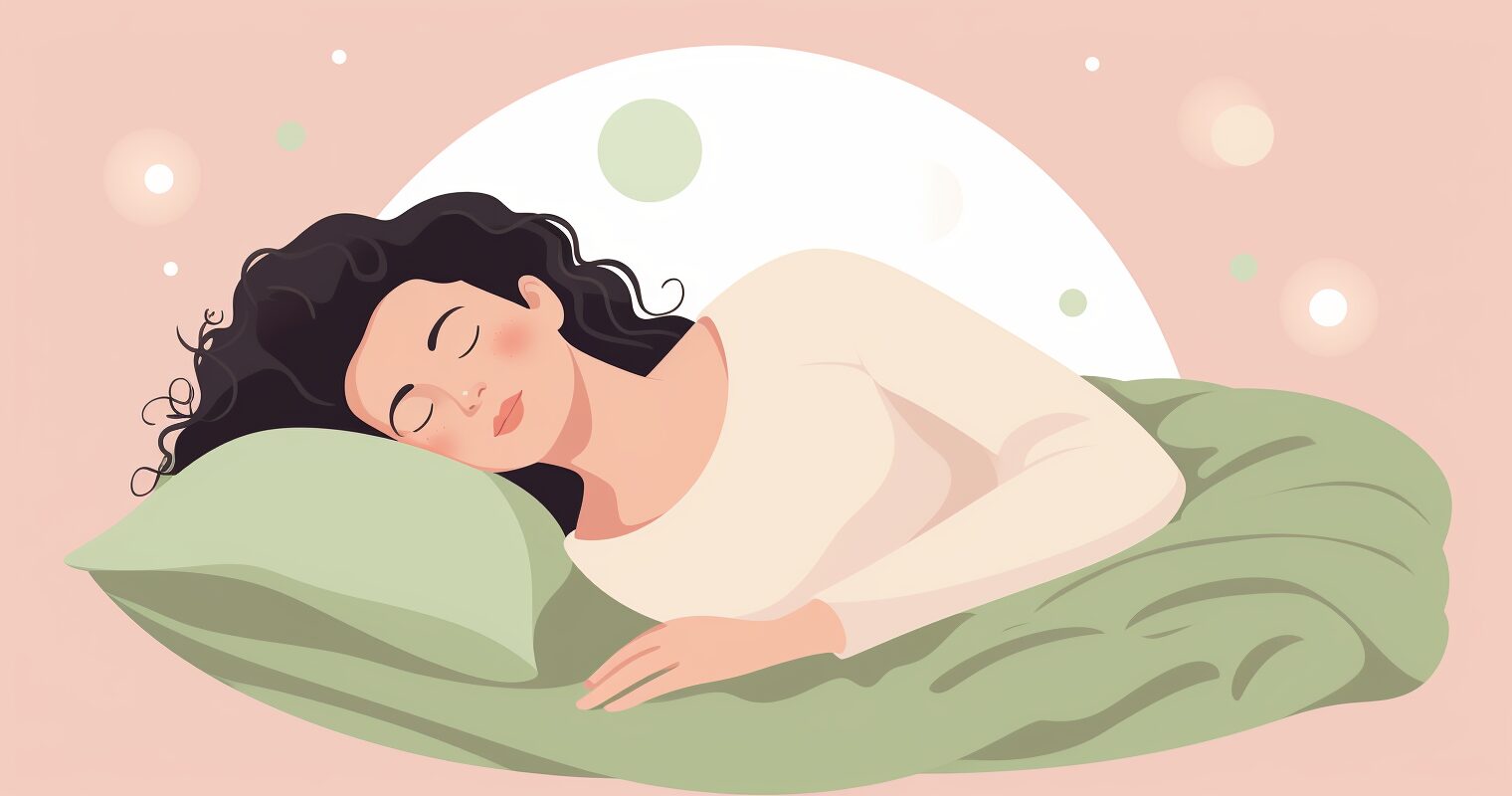Life • 12/29/2023
Alternatives to Try Before Using Mouth Tape for Sleep

Revivalist is a reader-supported endeavor and our posts may contain affiliate links. When you buy through links on our site, we may earn an affiliate commission.
Using mouth tape for sleep is a trending topic on TikTok currently. People claim mouth taping’s benefits include preventing dry mouth and snoring. How do you know if it’s safe or suitable for you? Consider trying some alternatives before trying the mouth tape hack to see if you can improve sleep issues.
What Is Mouth Taping?
Mouth taping uses porous tape placed vertically over the upper and lower lips to keep your mouth closed while you sleep. People do it to promote nasal breathing while they sleep. The nasal cavity warms and humidifies the air as it passes through. This warm air activates your lower lungs to take deeper and fuller breaths.
Breathing through your nose also helps your sinuses to produce nitric oxide, which lowers blood pressure and widens blood vessels to improve blood flow.
Your nose filters the air you breathe during the day or at night. This process removes dust, allergens and other particles from your air. Nasal breathing also activates the parasympathetic nervous system, which calms and relieves stress and tension.
Why Do People Use Mouth Tape For Sleep?
Most of the benefits of using mouth tape while you sleep are anecdotal. These benefits include reducing symptoms associated with mouth breathing.
- Treats dry mouth
- Prevents dental issues like cavities, gum diseases and bad breath
- Reduces sleep-disordered breathing
- Improves cognitive ability and growth in children
- Strengthens the immune system
While people online claim that these are mouth-taping benefits, further research is still needed to solidify these claims.
Where there is some research, it shows that mouth-taping improved symptoms of sleep apnea and reduced snoring. Sleep apnea occurs
In one study from the Healthcare Journal 2022, 20 mouthbreathers with mild obstructive sleep apnea wore mouth tape overnight for a week. Thirteen people snored less with the mouth tape and some experienced decreased severity of sleep apnea.
Mouth taping can also help doctors provide the right treatment option by monitoring mouth puffing in people who think they may have sleep apnea. A Journal of Sleep and Breathing study showed that people’s mouths puffed up after apnea episodes to restore their breathing.
Should You Use Mouth Tape for Sleep?
Although these studies have positive results, using mouth tape for sleep can also produce unwanted effects like:
- Skin irritation and dry lips
- Disrupted sleep if breathing through the nose is a challenge
- Discomfort and anxiety
If you experience symptoms like difficulty breathing during sleep, dry mouth and tiredness when you wake up, visiting a doctor to see how to treat those symptoms will be helpful.
Ultimately, a doctor will know what’s best for you and what you need to improve your sleep. You can also practice good sleep hygiene and try alternative methods to reduce snoring and have a restful night.
Alternatives To Using Mouth Tape For Sleep
Treating mouth breathing starts with knowing the cause. Here are some ways you can improve your sleep and promote nasal breathing:
Visit the Doctor To Check for Sleep Apnea
If nasal breathing is challenging or you can hear yourself breathing when you try to do it, you may have other issues that need a different treatment. Anatomical issues such as sinusitis, a narrow airway, a deviated septumor allergies may be the cause.
Some sleep apnea symptoms to look out for include snoring, gasping for air while you sleep, morning headaches, insomnia or hypersomnia (daytime sleepiness) and dry mouth.
While using mouth tape for sleep might encourage nasal breathing, you want to treat sleep apnea to prevent health issues like stroke, diabetes and high blood pressure.
Visit a doctor for evaluation. You may need surgery or medical treatments to help you breathe properly while you sleep.
Improve Your Sleep Hygiene
You can improve your sleep by changing habits and practicing good sleep hygiene. You may want to consider doing the following:
- A small workout or walk can reduce tension and help you fall asleep easier in the evening. You must exercise for at least 30 minutes daily to improve your sleep.
- Use Humidifiers or Air filters if you have allergies and sinus issues. Purifying your air can improve your breathing while you sleep and decrease symptoms like sneezing, coughing and a blocked nose.
- Keep a set bedtime and wake-up time.
- Reduce alcohol and caffeine intake a few hours before sleep. You will be able to fall asleep easier and have uninterrupted sleep cycles.
- To relax, try breathing exercises to get your body into rest mode. A great exercise to try is the 4-7-8 technique. You inhale for four seconds, hold for seven seconds, exhale for eight seconds and repeat.
- Adjust your sleeping position. Sleep on your side or your back to open up your airways. You can use supportive pillows to help you maintain sleeping positions.
- Practice oral hygiene. Regular flossing, brushing and tongue cleaning alleviate bad breath. Eat lots of fruit and vegetables and drink plenty of water to promote a healthy mouth and body.
Create a Peaceful Nighttime Routine
This gives you something repetitive to do before you go to bed. Every time you do this routine, your body will know it’s time to sleep. You can use timers or apps to help you keep on track with the routine. Some things you can include are:
- Take a warm bath before bed. This will help you to wind down and relax.
- Have some milky herbal tea. Milk has an amino acid that makes you sleepy and herbal teas like chamomile and lavender reduce stress and promote restful sleep.
- Create a skincare routine. Include a facial massage with a lavender skincare product to calm your mind
- Meditate or journal about your day to empty your mind.
Try Good Sleep Hygiene Before Using Mouth Tape
Try to improve your sleep hygiene and address root causes before trying mouth tape. While it works for some people, the risks need careful consideration. Ultimately, your overall health is essential and practicing good sleep habits will improve your general health and wellbeing.
Subscribe to Our Weekly Newsletter
We would love to connect deeper with you!


